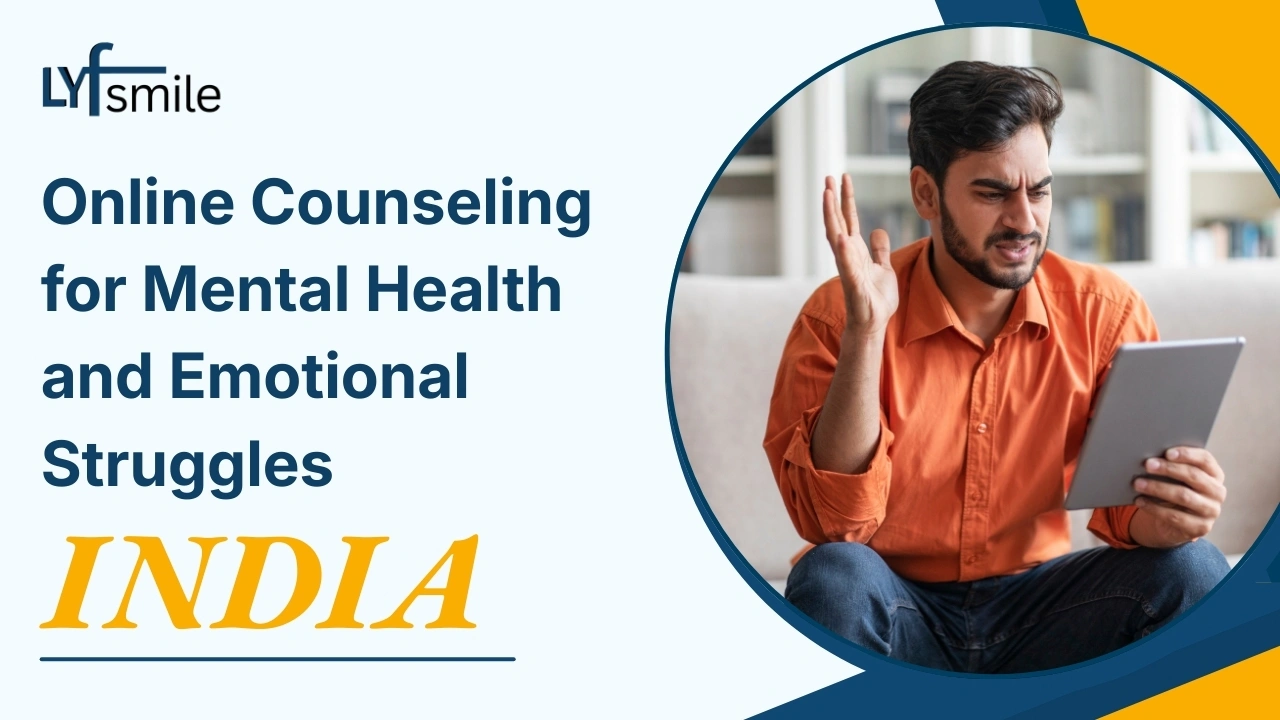
Diksha Shankhwar
How to Control Your Emotions in a Relationship During Conflicts
How to control your emotions in a relationship is one of the most important skills for building trust, love, and long-term stability. Relationships naturally involve intense emotions — from joy and excitement to jealousy and anger. Without control, these emotions can damage the bond between partners. With the right awareness and techniques, however, emotions can become a source of connection rather than conflict.
Understanding Why Emotions Run High in Relationships

Relationships act like a mirror. They bring out our deepest needs for love, security, and acceptance. This is why emotional reactions in relationships are often more intense than in other areas of life. A late text reply, a misunderstood tone, or a broken promise can trigger strong feelings because they touch on our fears of rejection or abandonment.
Emotions in relationships follow a clear cycle:
A trigger event (a comment, behavior, or silence).
A physiological reaction (racing heart, sweaty palms, or tense muscles).
An interpretation (“They don’t care about me” or “I’m not important”).
A behavioral response (raising your voice, crying, withdrawing, or shutting down).
By recognizing this pattern, you begin to see that emotions are signals, not commands. This awareness is the foundation of learning how to control your emotions and feelings before they harm your connection.
The Science of Emotional Regulation Between Partners

Neuroscience shows that when we feel hurt or misunderstood in love, our brain’s “threat center” (the amygdala) activates. It pushes us toward fight, flight, or freeze reactions. But our prefrontal cortex — the rational brain — has the power to step in and calm the storm.
This understanding is especially useful when exploring how to control your emotions when you love someone. Strong feelings of attachment can cloud judgment, but with conscious regulation, love can remain nurturing instead of overwhelming.
Emotional Awareness: The First Step to Relationship Harmony
The simplest yet most powerful strategy is building awareness. Ask yourself:
What exactly am I feeling right now — anger, sadness, or fear?
Where is this emotion showing up in my body?
What story am I telling myself about my partner’s behavior?
Even acknowledging “I feel anxious” or “I feel disappointed” reduces the emotional intensity. This practice, often called labeling, creates space between you and your reaction. It prevents small triggers from escalating into major conflicts.
By practicing awareness regularly, couples can learn how to control your emotions in the moment and transform disagreements into opportunities for deeper understanding.
Managing Anger Without Damaging Your Relationship

Anger is one of the most common emotions that can destabilize partnerships. Feeling angry is not wrong — it often signals unmet needs or crossed boundaries. The real issue is how anger is expressed. Uncontrolled anger can quickly turn discussions into fights, leaving long-term scars.
Learning how to control your anger emotions within a relationship starts with understanding triggers. Ask yourself: “Am I angry because of my partner’s action, or because of the meaning I attached to it?” For instance, a partner being late might trigger anger not simply because of the lateness, but because it feels like disrespect. Separating the behavior from the interpretation allows calmer responses.
Partners who learn to say “I feel hurt when you…” instead of “You always…” reduce escalation dramatically. Over time, this shift builds trust and helps both people feel safer. This is at the heart of how to control your emotions in a relationship — transforming raw reactions into constructive dialogue.
How to Handle Emotional Tears Constructively

Crying in relationships is often misunderstood. It is not a sign of weakness but a release of emotional tension. Still, frequent crying without communication can create confusion or guilt in the partner. Here are ways to manage how to control your emotions crying more constructively:
Pause before speaking: Tears can make conversations chaotic. Take a breath and gather yourself.
Share the message behind the tears: Explain, “I’m crying because I feel unheard,” so your partner understands the cause.
Avoid shame: Don’t judge yourself for crying — it is a natural release, not a flaw.
Time-out strategy: If crying becomes overwhelming, suggest pausing the talk and returning later with clarity.
Use supportive gestures: Sometimes, a hug or hand-hold communicates more than words.
Balance expression with solutions: Tears should lead to deeper conversations, not replace them entirely.
Handled with care, tears can invite empathy rather than distance in a relationship.
Teenagers and the Complexity of Young Love

Adolescents face an additional challenge: the intensity of first relationships. For them, even small conflicts feel like life-altering crises. Hormonal changes and identity struggles amplify every feeling, making it harder to regulate.
Learning how to control your emotions as a teenager in love requires guidance. Teens should be taught that emotions are powerful but not always accurate guides. A partner not replying to a message may not mean rejection — it could simply mean they are busy. Helping teenagers challenge their assumptions is crucial.
Creative outlets like sports, art, or journaling also channel emotions productively. And when anger or heartbreak becomes overwhelming, counseling provides a safe space for processing. Understanding these skills early prevents impulsive choices and builds emotional intelligence for adulthood.
In-the-Moment Strategies for Relationship Conflicts
Deep breathing cycles: Slow, mindful breathing calms the body before words escalate.
Label emotions quickly: Saying “I feel hurt” instead of “You’re wrong” keeps the focus on feelings, not blame.
Ground yourself: Use sensory grounding (sight, touch, hearing) to bring your mind back from spiraling.
Delay reactions: Step outside or take 10 minutes before continuing the discussion.
Set a repair intention: Remind yourself, “We’re on the same team” before re-engaging.
Practice self-soothing: Music, a walk, or writing can diffuse intensity before re-approaching your partner.
By practicing these tools, couples can better manage how to control your emotions in the moment and avoid unnecessary damage during arguments.
Love and Intense Attachment – Managing Emotions with Care
Being in love is one of the most beautiful yet emotionally intense experiences. When you deeply care for someone, every word, gesture, or silence can feel amplified. Love magnifies emotions such as joy, but also triggers vulnerability, jealousy, and insecurity. That’s why learning how to control your emotions when you love someone is critical for the health of your relationship.
The challenge often lies in balancing passion with stability. For example, checking your phone constantly for messages may seem harmless, but it can create anxiety and mistrust. Instead, grounding yourself in self-worth — reminding yourself that you are valuable beyond the relationship — helps reduce dependency-driven reactions.
Another powerful approach is open communication. If you feel anxious, express it as “I value our time together and sometimes I worry when plans change,” instead of accusing your partner. This keeps love nurturing rather than overwhelming. In essence, how to control your emotions in a relationship during love’s high intensity comes down to self-awareness and intentional expression.
How to Not Let Your Emotions Control You
Strong feelings can cloud judgment, but they don’t have to dictate your choices. Here are proven ways to ensure how to not let your emotions control you:
Pause before reacting: Even a five-second pause can change the tone of a conversation.
Reframe your thoughts: Instead of thinking “They ignored me,” ask, “What else could explain this?”
Create action plans: If you feel sadness, list small actions: (1) call a friend, (2) walk outside, (3) write three positives.
Set clear boundaries: Saying, “I need 20 minutes to cool down” prevents destructive arguments.
Use a distraction toolbox: Music, stretching, or doodling helps release intensity safely.
Practice consistently: The more you repeat these, the more natural it becomes to guide emotions rather than be guided by them.
These strategies shift power back to you. Instead of emotions driving the car, you remain in the driver’s seat.
Real-Life Case Study: From Reactivity to Stability
Consider Aisha, a 29-year-old professional who often felt overwhelmed in her relationship. Small disagreements would lead her to cry uncontrollably or send long, emotional messages she later regretted. She wanted to learn how to control your emotions crying and reduce impulsive behavior.
Through a structured counseling program similar to what Lyfsmile offers, Aisha started weekly sessions focused on emotional regulation. She practiced grounding techniques, journaling, and role-played healthier communication with her therapist. After six weeks, she reported fewer breakdowns, improved sleep, and more constructive conversations with her partner.
This case shows how professional guidance turns theory into practice. Emotional regulation is not about suppressing feelings — it’s about learning practical tools to express them in ways that strengthen relationships rather than damage them.
How to Control Your Emotions in a Relationship – The Role of Guidance
Even when you practice self-awareness and grounding techniques, some emotional situations feel too heavy to manage alone. This is where structured support comes in. Therapy and counseling provide a safe environment to decode your feelings, identify hidden triggers, and create healthier relationship dynamics. By seeking professional help, you not only learn how to control your emotions in a relationship but also build lasting emotional resilience.
Best Psychologist in India – Why Expertise Matters
When emotions spiral, the guidance of the best psychologist in India can be life-changing. An expert therapist doesn’t just give you advice; they equip you with tools backed by research. For example, cognitive-behavioral strategies help you reframe negative thinking, while mindfulness training teaches you to pause before reacting.
At Lyfsmile, clients often report breakthroughs in the very first few sessions — moments where they finally feel seen, understood, and guided toward emotional clarity. This professional edge is what separates random coping tactics from sustainable, long-term change.
Relationship Counseling Online – Support from Anywhere
One of the biggest advantages today is accessibility. With relationship counseling online, you don’t have to travel to an office or fit sessions into a busy workday. Video sessions provide the same safe space, while also giving you the comfort of being in your own environment.
Many couples find that online therapy helps them express sensitive topics more openly. With the right therapist, online counseling is not just convenient — it’s equally effective as in-person sessions.
Marriage Counseling – Building Stronger Foundations
Every relationship faces challenges, but marriages often magnify emotional struggles due to shared responsibilities. Marriage counseling focuses on creating healthy communication patterns, resolving conflicts, and rebuilding intimacy. Instead of letting arguments pile up, couples learn to pause, listen, and respond with empathy.
The result? A stronger, more balanced relationship where both partners feel valued.
Love Failure Quotes – Healing Through Expression
After a breakup, emotions feel raw and overwhelming. People often search for love failure quotes to find comfort in words that mirror their pain. While quotes can soothe the heart temporarily, healing requires deeper work — understanding the lessons behind the loss and building self-worth.
Counseling provides this deeper healing. It ensures that love failures don’t define you but prepare you for healthier connections ahead.
Depression Therapy – When Emotions Turn Heavy
Unchecked emotional struggles can sometimes lead to depression. That’s when depression therapy becomes crucial. Therapists help identify not only the emotional triggers but also the underlying patterns that feed into prolonged sadness. Through guided sessions, you learn how to rebuild routines, challenge self-defeating beliefs, and rediscover joy in daily life.
How to Stop Overthinking – Quieting the Mind
One of the biggest barriers to emotional balance is overthinking. Learning how to stop overthinking is essential because constant analysis fuels unnecessary worry. Techniques like mindfulness meditation, grounding exercises, and setting “thinking limits” help silence the mental noise.
When overthinking reduces, clarity and calm naturally rise — giving you greater control over your emotions.
Conclusion – Taking the First Step with Lyfsmile

Mastering emotional regulation is not about suppressing feelings; it’s about expressing them in healthy ways that strengthen relationships. Whether it’s learning to pause in heated moments, working with the best psychologist in India, or seeking relationship counseling online, every step builds emotional resilience.
At Lyfsmile, we believe everyone deserves this balance. Our tailored sessions in marriage counseling, depression therapy, and emotional regulation ensure that you don’t walk this journey alone.
Because the sooner you learn how to control your emotions in a relationship, the sooner you create the fulfilling love and life you deserve.








